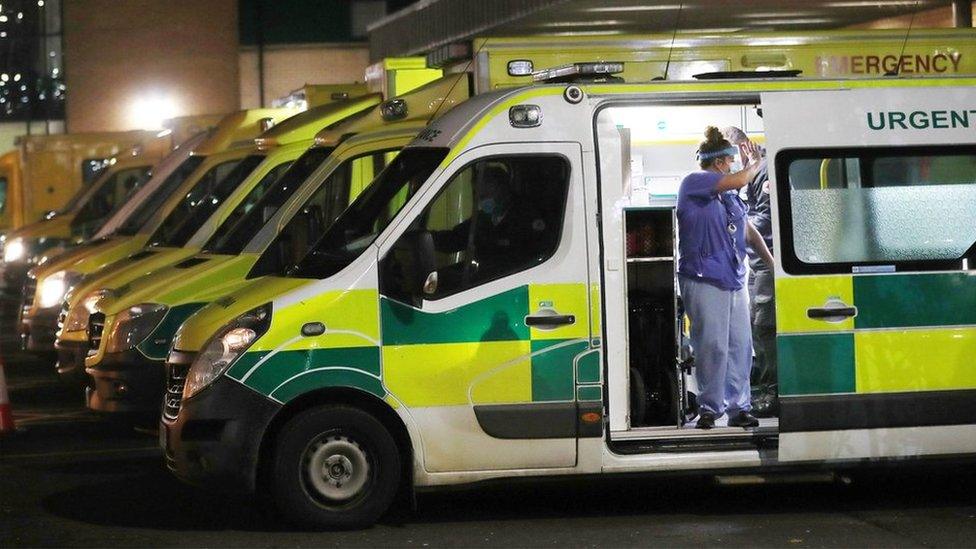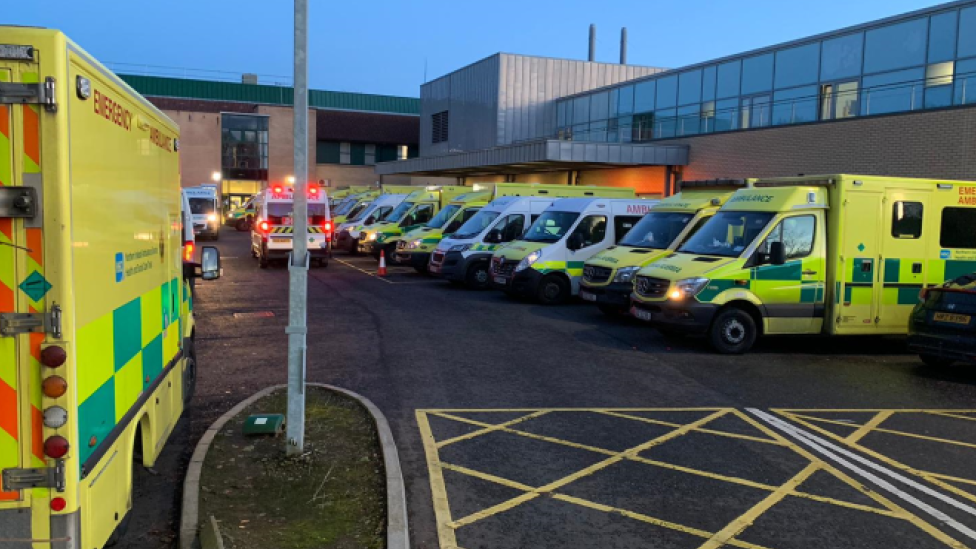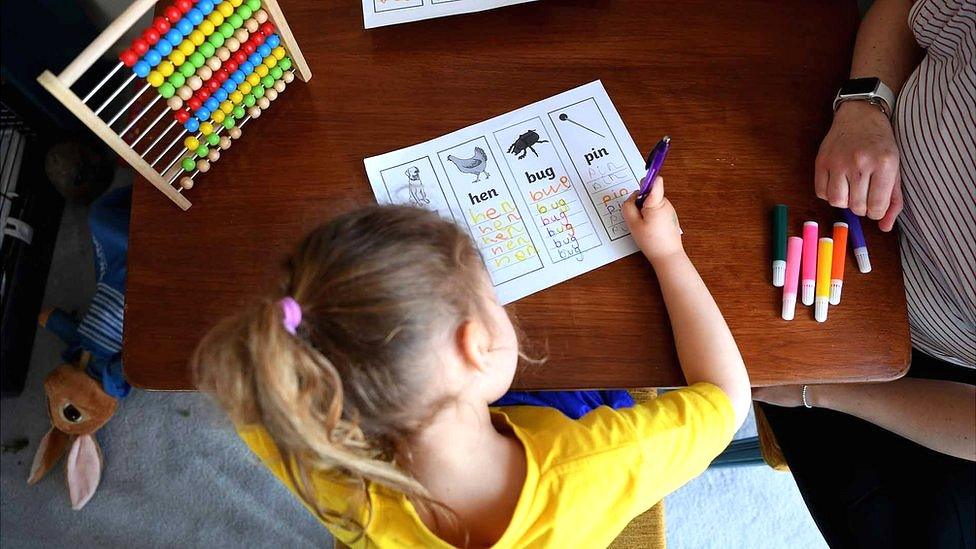Coronavirus: Warning over hospital capacity and ambulance delays
- Published

The Northern Ireland Ambulance Service has warned of "lengthy delays" in response times for less urgent cases due to a high level of staff absence.
About 160 employees are off due to Covid-19 related absences, a spokesperson said, with about 100 more absent for other reasons.
It comes as NI hospitals are almost at capacity with the latest figures showing only six beds empty.
Services on New Year's Eve are expected to be impacted.
The NI Ambulance Service has about 850 front-line ambulance staff, with nearly 100 call handlers in the control centre.
Meanwhile, a further 1,929 cases and 11 Covid-related deaths, nine of those occurring in the last 24-hours, were reported by the Department of Health on Thursday.
Health Minister Robin Swann said the figures were "a stark reminder that Covid thrives in company".
He said: "If you choose to meet others outside your household this new year you may well be inviting an unexpected guest to the party."
There have been 8,228 positive cases confirmed in the past seven days.
There are currently 467 inpatients who have tested positive for coronavirus and 34 in intensive care units.
Rapid rise in Republic of Ireland
In the Republic of Ireland, 1,620 new cases were reported in the past 24 hours, with 12 further deaths.
There are now 490 patients with Covid-19 in Irish hospitals. The figure has risen rapidly since Christmas Day, when the number was 253.
Ireland's Chief Medical Officer, Dr Tony Holohan, has written to Minister for Health Stephen Donnelly expressing concern that Level 5 lockdown measures introduced on Wednesday may not be enough to curb transmission of the virus.
'One hand tied'
The medical director of the Northern Ireland Ambulance Service (NIAS), Dr Nigel Ruddell, has said between a quarter to a third of front-line staff are currently unavailable.
Speaking to BBC Radio Foyle, he added: "It's like fighting with one's hand tied behind one's back.
"Our only other option is to try and look to the public to reduce demand on the services at this time.
"What we will see from an ambulance perspective is potential for patients having to wait longer for a 999 call to be answered or indeed for emergency crews to arrive."
Dr Ruddell emphasised ambulance crews would focus on "critical cases" and aim to respond "within a relatively normal time frame of 10 minutes".
"There is a risk that people dial 999 will wait longer for us to pick up the phone and I apologise for that," he added.
He encouraged anyone calling to hold the line, even if prompted that they are in a queue.
The service also said the cover for the Belfast area on New Year's Eve had been halved "as a result of staff unavailability, including Covid-related absence".
Available crews will be complemented by one A&E support crew and three voluntary/private ambulances, will be targeted to less urgent calls.
The ambulance service said that in the Belfast area on New Year's Eve planned cover had been reduced from seven crews to three-and-a-half.
It said emergency cover would be complemented by one NIAS support crew and 10 voluntary/private ambulance service crews.
It added that all available crews from neighbouring stations would also be used.

Earlier in December ambulances queued outside Antrim Area Hospital
The health service in Northern Ireland has faced severe pressures in recent weeks, largely due to Covid-19.
On the night of 15/16 December doctors treated patients in ambulances with 17 vehicles outside Antrim Area Hospital at one point.
There were also long waits at the Ulster Hospital in Dundonald, County Down.
At that point more than 1,000 health staff across Northern Ireland were isolating for Covid-related reasons.
- Published31 December 2020

- Published31 December 2020
